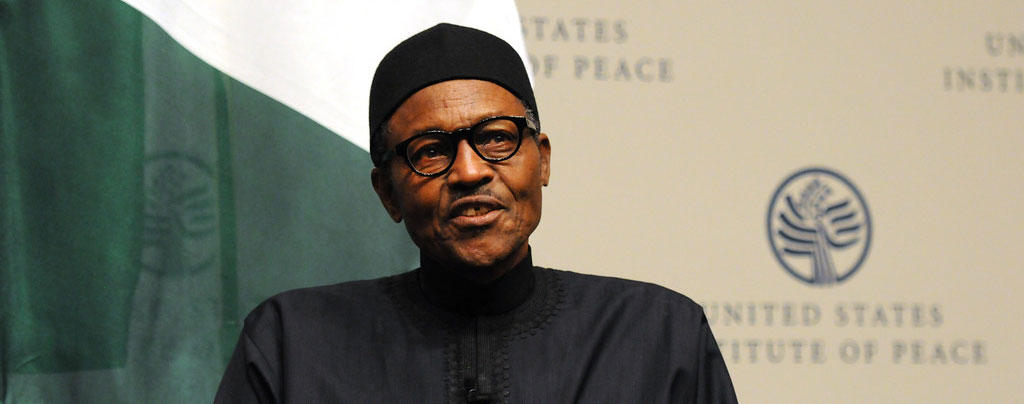Nigeria: A Conversation with President Muhammadu Buhari
Read the Event CoverageThe President of Nigeria, His Excellency Muhammadu Buhari, gave remarks and answered questions at the U.S. Institute of Peace on July 22, during his first visit to the United States since taking office. The event was co-sponsored with the Atlantic Council, the Center for Strategic and International Studies, the National Democratic Institute, the International Republican Institute and the International Foundation for Electoral Systems.
Watch an interview with President Buhari.

In a milestone for Nigeria and multi-party democracy in Africa, Muhammadu Buhari was elected president in March 2015, becoming the first opposition candidate to unseat an elected Nigerian president through the ballot box. Following a vigorous political campaign period, Nigerians successfully managed a relatively peaceful electoral process and government transition. As the new government begins its mandate, political, economic and security pressures remain intense, including the escalating insurgency of Boko Haram and unresolved conflicts across the country.
President Buhari’s remarks at USIP came on the last of his three days in Washington, following his July 20 meeting with President Obama.
Continue the conversation on Twitter with #BuhariDC.



